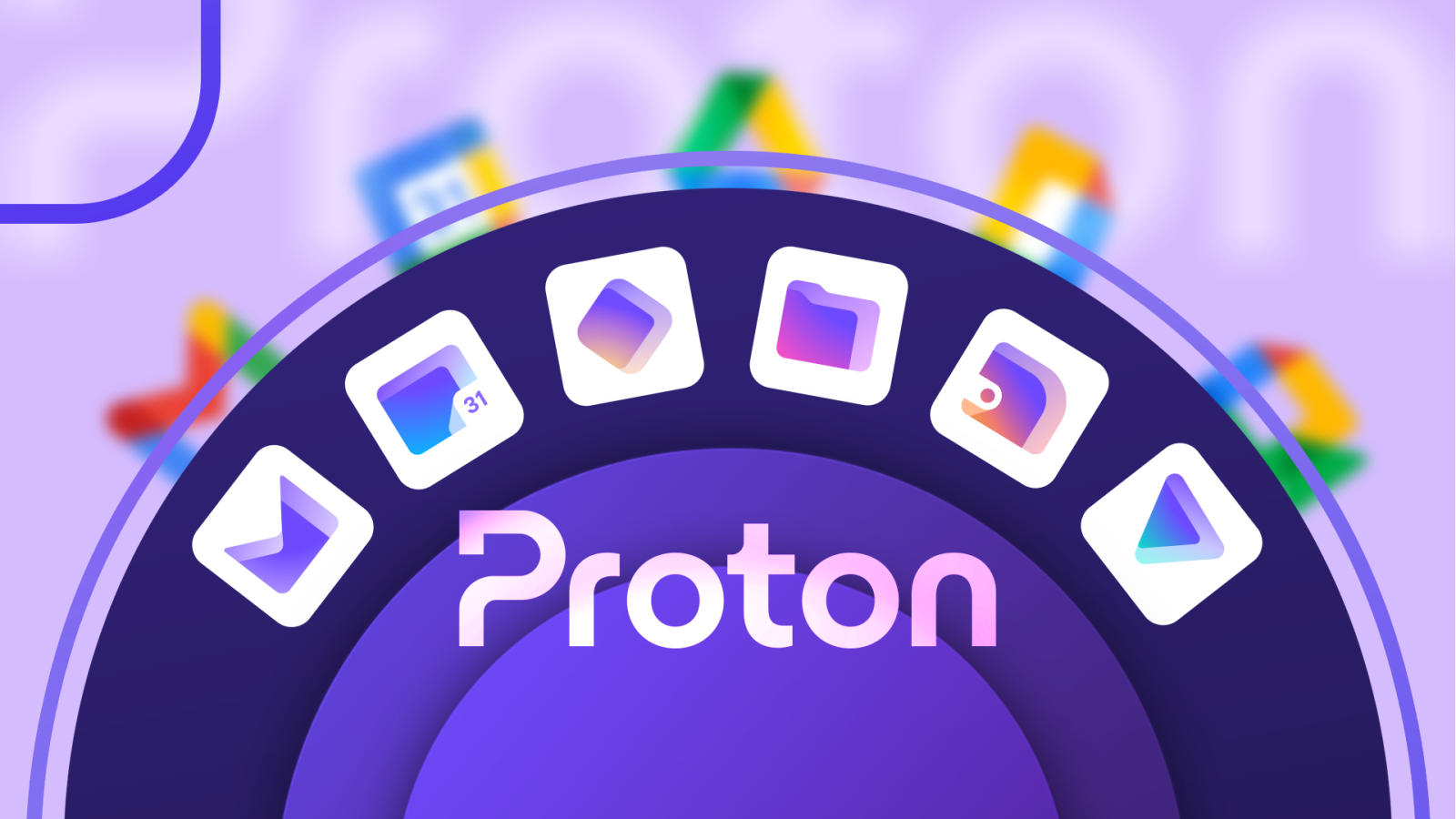Google’s ecosystem is an integral part of my daily life, with Gmail, Google Drive, YouTube, and Google Photos playing a crucial role. As I notice myself hopelessly locked into its ecosystem, I’m concerned about my data and privacy. When I looked around for alternatives, Proton emerged as one of the strongest contenders.
The Switzerland-based company is known for its focus on privacy and security. What started as Proton Mail, a secure email alternative to Gmail, has grown into an entire ecosystem with Proton VPN, Proton Calendar, Proton Drive, and Proton Pass. They’re available for Windows, macOS, Android, and iOS. These services provide a compelling alternative to Google’s offerings while prioritizing user privacy. Here’s how Proton is making it easier than ever to break free from Google’s grip.
Related
Proton Mail: A secure Gmail alternative
Proton Mail’s open-source transparency has won me over
Gmail is the backbone of Google’s ecosystem since it is the login point for most of its services. But it’s no secret that Google scans emails for targeted advertising and AI-driven recommendations. In contrast, Proton Mail offers end-to-end encryption, ensuring that not even Proton can snoop around your emails. Here are the other advantages over Gmail I’ve noticed:
- Zero-access encryption: Emails are encrypted so the service provider cannot access the digital files. Zero-access encryption ensures complete privacy.
- No ads and tracking: Proton Mail doesn’t monetize user data by showing ads or selling access to messages.
- Open-source: Since Proton Mail is open-source and independently audited, transparency is a plus for the privacy-conscious.
While Gmail is a feature-rich and convenient email service, Proton Mail is the clear winner for me privacy-wise. With support for PGP encryption, alias addresses, and advanced security, I think it’s a good first step in reducing my dependence on Google.
Proton Calendar: a private alternative to Google Calendar
Proton Calendar is catching up with its competitors
Google Calendar makes scheduling effortless since it seamlessly integrates with Gmail and other Google services. However, it also means Google can access all your meetings, events, and travel plans. While Google Calendar offers more features, Proton Calendar is catching up fast.
Here’s why I think Proton Calendar is better for privacy:
- End-to-end encryption: Unlike Google Calendar, Proton Calendar encrypts event titles, locations, descriptions, and participant information.
- No tracking or ads: Proton does not collect or monetize user data, whereas Google uses event data to improve its services and target ads.
- Cross-device syncing: Proton Calendar works across devices and offers mobile apps. You can add events to the calendar from your Proton Mail inbox.
Proton Pass: A privacy-first alternative to Google Password Manager
Proton’s transparent approach is a plus
Google Password Manager integrates seamlessly into Chrome and Android, but it’s tied to the data-collecting firm’s ecosystem. On the other hand, Proton Pass offers an encrypted, cross-platform solution with a focus on privacy.
Here’s what makes Proton Pass better:
- No dependency on Google: Proton Pass works across different browsers and devices without being locked into one ecosystem.
- End-to-end encryption: Passwords are encrypted before they leave the device. It also applies end-to-end encryption to usernames, web addresses, and notes data.
- Secure notes: I can store and share passwords, secure notes, or credit card information with a Proton Pass Plus membership. On the other hand, Google Password Manager doesn’t store other types of data.
- Open-source and audited: Proton Pass is transparent about its security measures, unlike Google’s black-box approach.
Related
Proton Drive: A privacy-focused alternative to Google Drive
It doesn’t go beyond storing your data
Although Google Drive offers free storage and seamless collaboration, it’s another data collection point for Google. Files stored on Google Drive are subject to scanning for policy violations, and their content can influence targeted ads. However, Proton Drive lacks some of Google Drive’s collaborative tools.
Here’s how Proton Drive compares:
- End-to-end encrypted file storage: Unlike Google Drive, where Google can access all files, Proton Drive encrypts data on the client side. The data is unreadable to anyone but the user.
- No data mining: Proton Drive neither scans files nor uses them for advertising.
The challenges of switching to Proton
Proton Drive is a major letdown
Proton offers a strong alternative to Google’s services, but moving over poses a few challenges. A big problem with the Proton ecosystem is Proton Drive. Sometimes, it takes too long to sync my documents. Another issue is that I can’t directly work on spreadsheet apps like Excel or Sheets. I must download the file, make changes, and upload it back to Proton Drive. It becomes a hassle when I need to make regular changes to the document.
While Google offers 15GB of free cloud storage, Proton’s free accounts have limited capacity, with Proton Drive providing only 5GB of free storage. Another factor pulling down Proton is that its apps are yet to develop deeper integrations, whereas Google’s ecosystem works seamlessly across platforms. Additionally, Proton doesn’t offer an alternative to Google Sheets, Slides, or Meet.
Related
Am I ready to replace Google with Proton?
Although ditching Google entirely is still challenging, Proton is making it more feasible than ever. I know I have better control over my data since Proton offers privacy-focused alternatives to Google apps. I’m willing to put up with some issues, but the inconvenience of managing my spreadsheets and documents in Proton Drive holds me back from entirely switching to Proton’s ecosystem.
As Proton continues to expand and refine its services, I believe the day when privacy-conscious users can truly escape Google’s grip is getting closer. But that’s only if Proton doesn’t grow to become yet another Google.

Leave a Reply